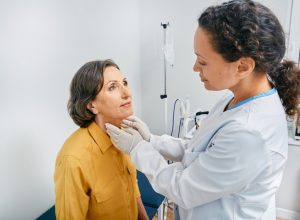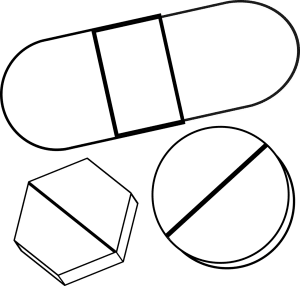As you get older, you might find that you don’t have as big of an appetite as you once did, and that you eat less than you used to. This is actually a normal part of the aging process, but if you are losing a significant amount of weight because of your loss of appetite, it could mean that you have an underlying issue, such as a stomach virus, or worse, In fact, studies show that a 10% loss of overall body weight is linked to a higher mortality rate just six months after the initial weight loss. This is why it is important to know why you might have no appetite lately, and what you can do about it, so you can live a long, healthy life.
Causes Of Loss Of Appetite
If you have no urge to eat, no sensation of hunger, or are experiencing any bloating, pain, or are nauseated at the thought of food, there is probably a reason behind it:
Medical Causes
There could be a medical reason behind your loss of appetite, including:
- Thyroid disorders– Medications that treat hyperthyroidism or hypothyroidism can cause a loss of appetite.
- Dementia or Alzheimer’s– Weight loss and appetite loss are common in Alzheimer’s patients; if you are forgetting to eat, speak to your doctor.
- Kidney failure– One of the symptoms of kidney disease is reduced appetite.
- Hepatitis– One of the symptoms associated with hepatitis inflammation of the liver is loss of appetite
- COPD– Chronic obstructive pulmonary disease causes changes in hormones that can lead to loss of appetite.
- Cancer- Some cancers, particularly ovarian, pancreatic, lung, and stomach cancers will suppress your appetite, along with other symptoms such as fatigue.
- Addison’s disease and Cushing’s syndrome– Both of these endocrine disorders will cause loss of appetite.
- HIV
Psychological Causes
Your mental and emotional health can take a toll on your appetite as well. Many older adults will experience a loss of appetite when they are stressed or when dealing with other issues such as:
- Anxiety
- Depression
- Eating disorders
Medications

A lot of medications can cause appetite loss, or change your appetite. They can reduce feelings of hunger, make you more nauseous, and even change your sense of smell or taste. Medications that can cause a loss of appetite include:
- Antidepressants
- Antibiotics
- Chemotherapy
- Immunotherapy
- Radiation therapy
- Thyroid medications
- Pain relievers such as codeine
Natural Remedies To Increase Appetite
There are some natural remedies and lifestyle changes that can help increase your appetite. For example, did you know that when you eat with other people, you tend to eat more than when eating by yourself? Try eating with friends or family when you can; you can also try the following:
- Eat less fiber– Sure, fiber has a lot of health benefits, but eating too much of it can lead to appetite loss, as well as weight loss since it helps you stay fuller longer.

- Get more sleep– When your body’s circadian rhythm is regulated, your appetite will be as well. Try to have a regular sleep schedule and see if it helps.
- Regulate your temperature – If you live in a hot environment, try to stay cool as much as possible. Heat can decrease your appetite so stay cool by drinking cold liquids and wearing lightweight clothing.
When To Seek Help
If you are experiencing a loss of appetite and it is resulting in weight loss, it is important to seek medical attention, especially if you are experiencing any of the following symptoms:
- Nausea
- Bloating
- Indigestion
- Blood in your stool
- Diarrhea
- Constipation
It is important to see a doctor so they can determine if there are any underlying causes behind your appetite loss. And if you are taking medication that is resulting in consistent loss of appetite, call your doctor and schedule an appointment to see if there are any other medications you can take.
Not eating as much as you get older is quite normal, but if it starts to seem like an issue, and if you are losing too much weight, or are experiencing any of the aforementioned issues, you should speak to your doctor. There can be many reasons why you’re not feeling hungry; it’s important to find out what’s going on, so you can deal with it properly instead of allowing whatever the issue is to get worse and threaten your health.
Remember, when you see the doctor, you will have out-of-pocket expenses, such as your Part B deductible and your 20% Part B coinsurance, which can add up to a lot, so it’s definitely worth looking into a Medicare Supplement Plan to save as much money as you can. Come to EZ and talk to one of our agents: we work with the top-rated insurance companies in the nation and can compare plans in minutes for you at no cost. To get free instant quotes for plans that cover your current doctors, simply enter your zip code in the bar on the side, or to speak to a licensed agent, call 888-753-7207.
